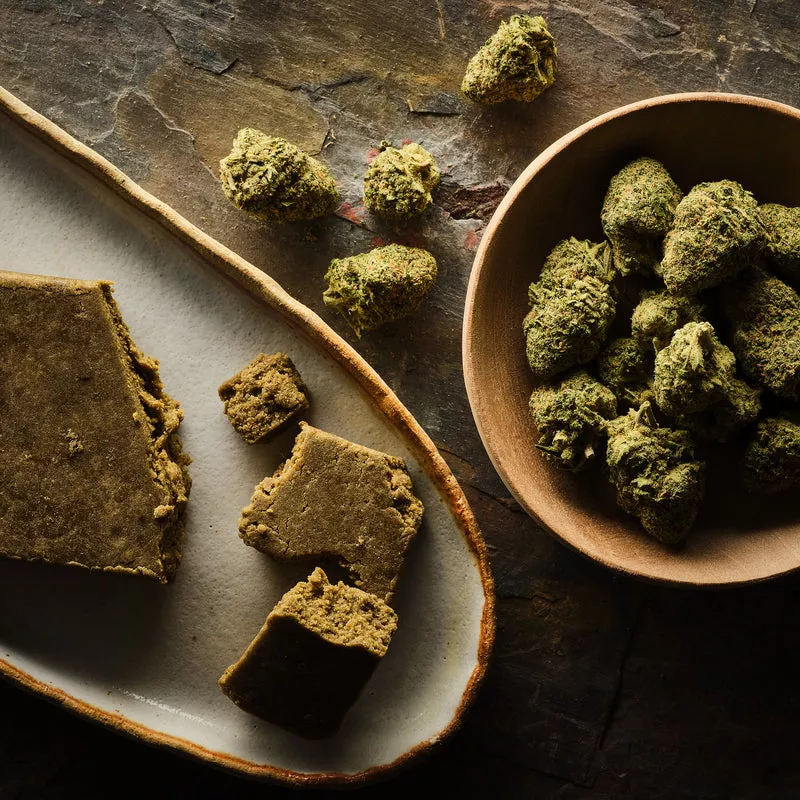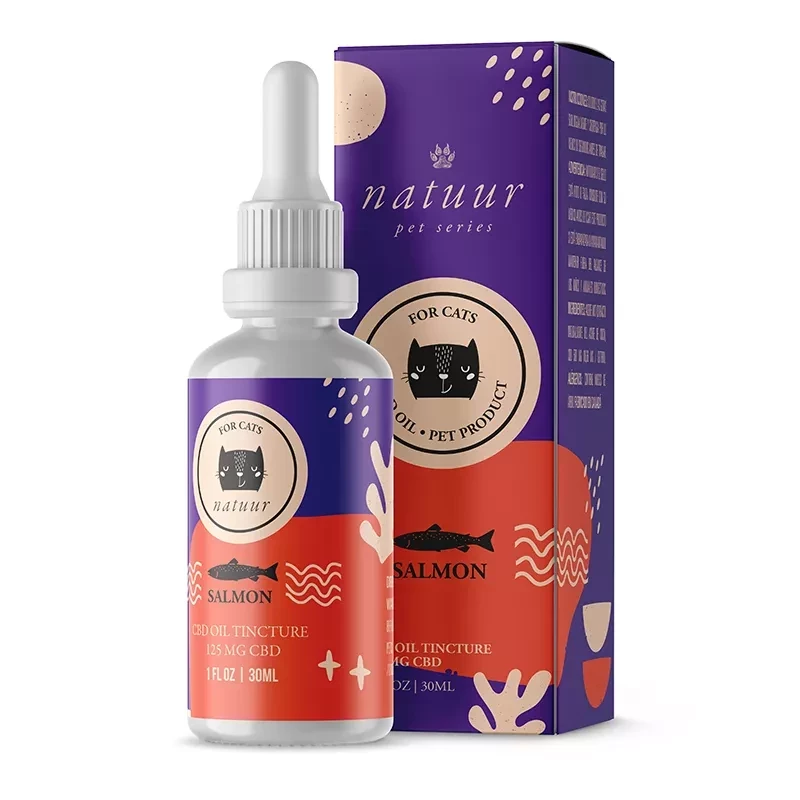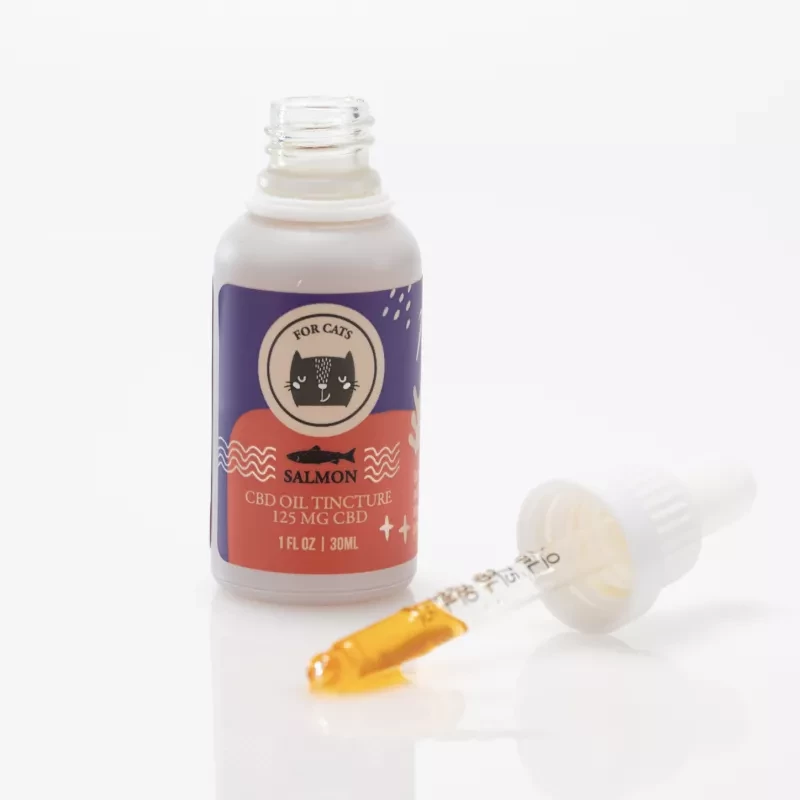- Shop All
- Type
- (148) THC>
- (76) CBD>
- Need
- Sleep>
- (23) Pain>
- (14) Anxiety>
- (6) Pets>
- (91) Edibles
- (16) CBD Edibles>
- (64) THC Edibles>
- (3) Ratio Edibles>
- (40) Hybrid Edibles>
- (89) Vegan>
- (5) Beverages>
- Strain
- (36) Indica>
- (31) Sativa>
- (57) Hybrid>
- (15) Tinctures
- (5) Anxiety Tinctures>
- (9) CBD Tincture>
- (1) Pain Tincture>
- (4) Ratio Tincture>
- (4) Sleep Tincture>
- (4) THC Tincture>
- (4) Capsules
- (1) CBD Capsules>
- (0) THC Capsules>
- (3) Ratio Capsules>
- Foggers
CBD for Pets Reviews
Lexie LivingstonApril 12, 2022LatestContents
We're all seeking new ways to pamper our pets and provide them with the greatest life possible. Giving our pets the best, whether it's a new toy, a fluffy bed, or a delectable treat, is something we enjoy doing. As a result, incorporating a CBD pet tincture into your four-legged friend's daily routine could be an excellent approach to ensure that they remain happy and healthy for the longest time possible.
If your pet is suffering from worry or stress, age related issues, or hunger concerns, CBD pet treats Canada could be an excellent natural alternative and helpful remedy to their symptoms. Of course, like with anything we give our pets, the quality of the product must be paramount. In this article, we’ll explain what to look for in choosing the best CBD for pets. We’ll list some of the top recommended pet products on the market, as determined by verified buyer’s reviews. Here at Birch + Fog, we take the guesswork out of CBD purchases by guaranteeing that you're providing your pets high-quality CBD oil that meets and exceeds label claims for purity and potency. Let’s jump right in!
The Basics of CBD for Pets Canada and What to Look for Before Buying
To begin, CBD extracted from hemp is available in a variety of forms. You can use a CBD pet tincture orally or on the gums, apply a salve topically to the skin, or give your pet CBD-enriched foods such as CBD pet treats Canada. When choosing CBD for pets, it’s important to follow a few guidelines to ensure that you are buying a good quality product.
Full-Spectrum and Isolate CBD for Pets Benefits:
Full spectrum means you're getting the most cannabinoids possible. Those cannabinoids work together to reach optimum effects (also known as the entourage effect). CBD isolate is made by eliminating all other chemicals from cannabis, such as terpenes, flavonoids, and other cannabinoids. This is a pure CBD product with no other compounds. Broad spectrum has also had THC removed, however, unlike CBD isolate, other cannabinoids and terpenes are retained.
Extraction Method:
Look for CBD that has been extracted using CO2. This signifies the oil was extracted by cold pressing the plant rather than utilizing chemical solvents like butane (a lighter fluid) or alcohol.
Non-toxic and Organic:
While becoming USDA organic certified isn't always an option, seek out CBD companies that don't use pesticides, herbicides, or any other chemicals on their hemp plants. Your best option is to purchase organic CBD oil for pets, however, if this is not an option, review third-party independent lab reports to make sure that there are no contaminants present. For more information on potential contaminants, click here.
Third-Party Independent Lab Testing:
It’s extremely important to find a product that has utilized third-party independent lab testing and can provide you with a Certificate of Analysis (COA). The lab reports should show how much CBD (and THC) is in the product, as well as how it performed in testing for heavy metals and fungicides. It's a red flag if you can't find a COA on the company's website or if the company refuses to share it.
Analyze the Label for Accuracy:
Before you buy something, read the label completely. Some CBD companies, particularly those in the pet market, use deceptive labels. For example, a pet CBD tincture 300mg should contain 300mg of active CBD. Often, companies will state that their products contain 1700 mg or more. However, it's critical that the label specifies the number of mg of CBD or full spectrum CBD, because in many situations, a large number (such as 1700 mg) refers to the quantity of hemp oil or hemp seed oil, which does not include active CBD. That means a product claiming to contain 1700 mg of hemp oil but only 150 mg of active CBD will be significantly less effective than one containing 1100 mg of active full spectrum hemp CBD. For a more detailed guide on how to read a CBD label, click here.
What is the CBD for Pets Dosage?
Despite the fact that some CBD products offer dosing guidelines on the label, it can be difficult to determine an appropriate dosage due to so many contributing factors. Starting with 1 mg per 10 pounds of body weight twice a day and watching your pet's reaction is recommended by experts. Using a tincture to start rather than CBD pet treats Canada can make dosing easier, as you have more control to slowly adjust the dosage up or down.
CBD for Pets Canada: Top Customer Recommended Products
Here at Birch + Fog, we’ve taken the time to verify quality and effectiveness in all of the products mentioned below. Each and every CBD pet tincture and treat has been tested by third-party independent labs and verified to contain pure ingredients without any contaminants or ingredients that may be harmful to your pet. In addition, we’ve looked into all of the CBD for pets reviews to ensure our customers are happy. The following are some of our top-rated pet products!
1 Salmon CBD Pet Tincture for Cats | Natuur
With only 2 simple ingredients, this tincture is simple, pure, and potent. It contains high-quality, CO2 extracted CBD isolate combined with wild Alaskan salmon oil. Your cat will receive the powerful healing of 125mg of CBD with omega-3 and omega-6 fatty acids, antioxidants, and traces of vitamins from the Alaskan salmon oil. This CBD for pets benefits include alleviation from pain, anxiety, epilepsy, and phobias, in addition to promoting a healthy immune system, healthy skin, and a shiny coat. All ingredients in this tincture are lab-tested, organic, vegan, gluten-free, and cruelty-free. The recommended CBD for pets dosage is 0.5mg of CBD per 2 lbs. of body weight.
Pros:
- Contains CO2 extracted CBD isolate
- 125mg of CBD per bottle
- Simple, pure, and potent
Cons:
- Will not produce the entourage effect
Highlights:
- Only 2 simple ingredients: CBD isolate and wild Alaskan salmon oil
- All ingredients are lab-tested, organic, vegan, gluten-free, and cruelty-free
- Additional benefits from omega-3 and omega-6 fatty acids, antioxidants, and traces of vitamins
Customer Experience:
According to recent CBD for pets reviews, customer’s adore the quality of the ingredients in this tincture. Each and every ingredient is lab-tested, organic, vegan, gluten-free, and cruelty-free, making it a luxury product at an incredibly reasonable price. Verified buyers report that their cats love the salmon taste and get excited for it in their food. They report that their cats are less anxious, more relaxed, and have a noticeably shinier coat.
2 CBD GOODIES: CBD Dog Treats
These natural and tasty 100% Canadian beef tender sticks are the cbd dog treats your pup has been dreaming of. Each 100mg beef treat contains 5 mg CBD to help ease anxiety and digestive problems, as well as inflammation and joint pain caused by arthritis and old age. CBD Goodies contain no artificial colours, additives, or preservatives - just pure goodness for your deserving companion.
Pros:
- High Quality CBD
- Provides the entourage effect
- Contains cold-pressed hemp seed oil
Cons:
- Contains only 5mg of CBD per treat
Highlights:
- Certified full-spectrum organic CBD oil
- Contains natural, human food-grade ingredients
- Handmade
Customer Experience:
Customers admire Pawtanical’s commitment to providing quality products for pets that are not, “just a pet, they’re family.” With high-quality ingredients that are all recognizable and human-grade, customer’s feel comfortable giving these handmade treats to their dogs. Verified buyers report that these treats help their dogs with joint pain and when given before bed, helps them get a great night of sleep.
3 CBD Drops for Dogs | CBD Goodies
This pet CBD tincture 300mg for small dogs is also available in a 900mg bottle for big dogs. It is made with organic coconut oil and hemp-based CBD extract, with no traces of THC. This product contains no artificial additives or preservatives. Dosing is easy as the drops can be placed into your dog’s meals or directly onto their tongue. It provides relief from pain and anxiety while also acting as a potent anti-inflammatory. The recommended CBD for pets dosage is 0.5mg of CBD per 1kg of body weight.
Pros:
- Contains hemp-based CBD extract with no THC
- Dosing is simple either on your dog's food or on their tongue
- Provides pain and anxiety relief while also providing anti-inflammatory benefits
Cons:
- Will not receive maximum benefits with the entourage effect
Highlights:
- No artificial additives or preservatives
- Made with organic coconut oil
- 2 variations for small and big dogs
Customer Experience:
CBD for pets reviews on this product are all positive. Customers report that it is very effective for joint pain and mobility issues, especially in aging dogs. It is also very effective for separation anxiety, giving their dog a sense of calmness while they are away. Verified buyers indicate that their dogs thoroughly enjoy the taste of these drops.
Final Thoughts
For a lot of us, caring for our pets is like caring for our children as we want to give them the best. A CBD oil can be a terrific natural addition to the lives of your aged dog, anxious cat, or sore horse. When shopping for CBD for pets Canada, always make sure to follow the guidelines listed in this article so that you’re buying pure and effective products, just like the ones listed above. Check out our entire line of CBD pet products here for other great options!
0/5 (0 Reviews)Latestfrom B+FBe the first to know about exciting new products, special events, seasonal offers, and much moreOur Collective
Wellness to your doorstepCopyright © 2024 All Rights Reserved | BIRCH + FOG[gtranslate]Save your cart?
x












